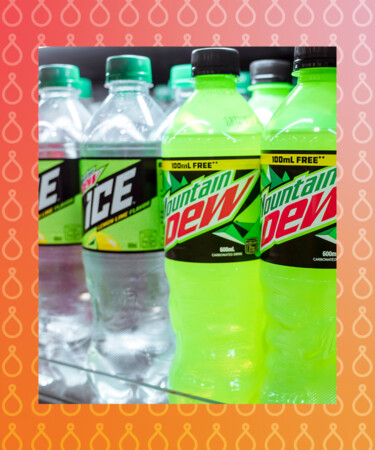The launch of several boozy soft drinks this year, like Hard MTN Dew and other alcoholic soda reimaginings, has garnered quite a controversy. Those complaints bubbled up in a letter submitted to the U.S. Department of the Treasury and the Alcohol and Tobacco Tax and Trade Bureau (TTB) last Thursday.
The submission is part of an open call for comments by the TTB over adjusting regulatory measures in the alcohol industry. Several complaints submitted in response to TTB’s Advance Notice of Proposed Rulemaking, posted in November, addressed the marketing and sale of hard sodas.
A group of 22 representatives from independent wholesalers across the U.S. penned a letter to Treasury secretary Janet Yellen and TTB administrator Mary Ryan. In the letter, dated Dec. 15, wholesalers from 17 states outlined concerns pertaining to the retail positioning of these soft drinks-turned-RTDs.
The boozy versions of soft drinks such as Simply Lemonade or Hard MTN DEW are often created in collaboration with the original soda companies, some of which are owned by PepsiCo and Coca-Cola. One significant complaint, outlined in the five-page letter, relates to the proximity of the original soft drink offerings to the alcoholic versions.
“Retailers that carry both the alcoholic and non-alcoholic versions of these brands (several of which have been marketed to minors for years) are displaying them together in the retail environment, often outside of the traditional alcohol aisle,” the letter states. “It is unrealistic to think that soft drink manufacturers are not leveraging slotting fees for their non-alcoholic brands to ensure preferential shelf space for the alcohol counterparts.”
Several photos, included in the letter, depict cases of the flavored malt beverages positioned nearby to frozen waffles, flavored water, Hot Wheels toys, and other non-alcoholic offerings. The group expresses concern about the potential use of slotting fees, a prohibited practice that includes companies paying for specific retail placement.
“Additionally, as a coalition of independent businesses across the country that send workers to stores each day to make deliveries, we have seen first-hand the inappropriate placement of some of these new alcohol products,” the letter states. “Whether near children’s toys and juice drinks or next to the non-alcohol versions of their brands, these products are being sold in places in which they do not belong.”
Comments are open on the Federal Register’s website until March 9, 2023.
This story is a part of VP Pro, our free content platform and newsletter for the drinks industry, covering wine, beer, and liquor — and beyond. Sign up for VP Pro now!
